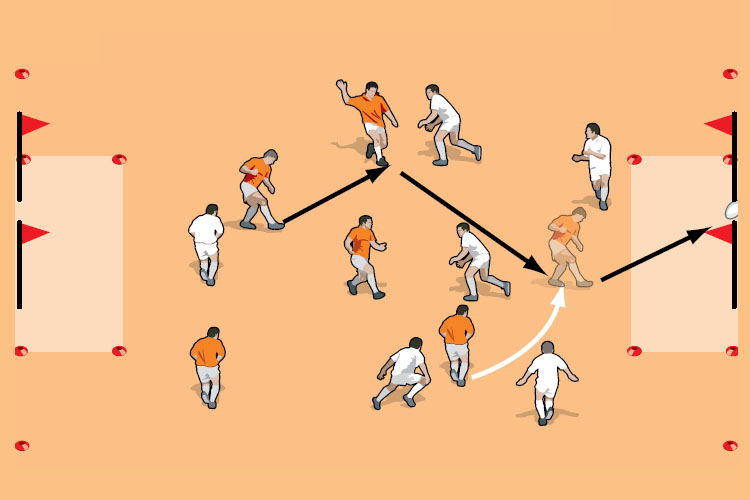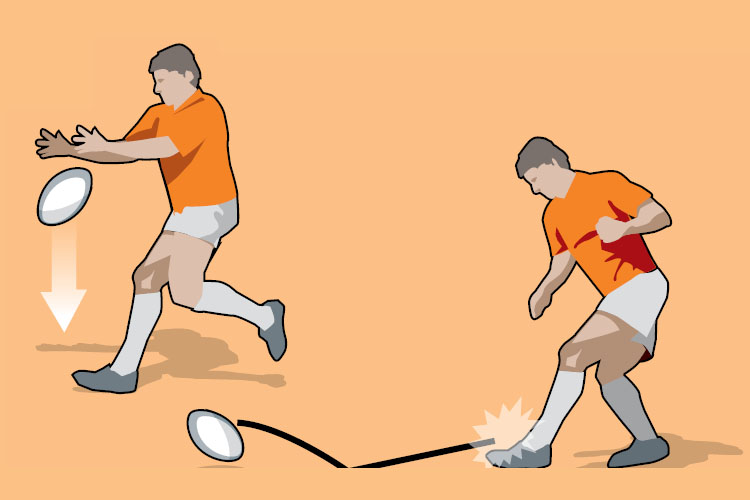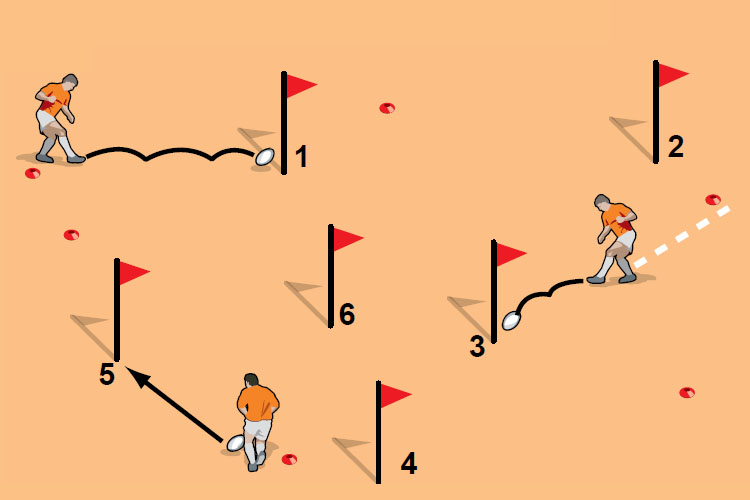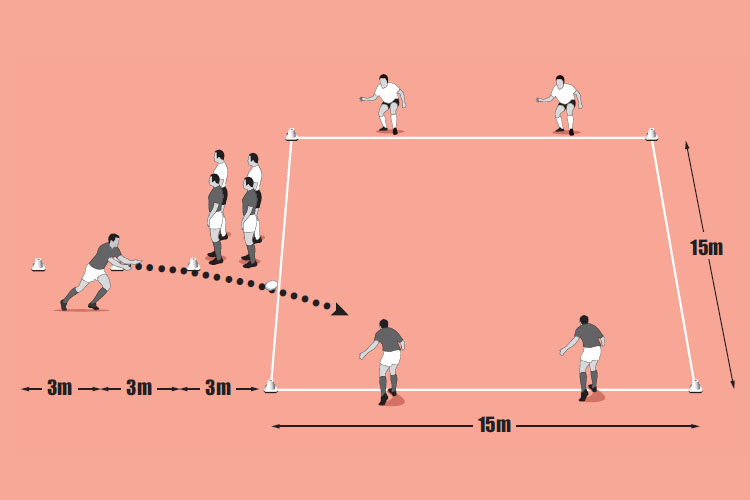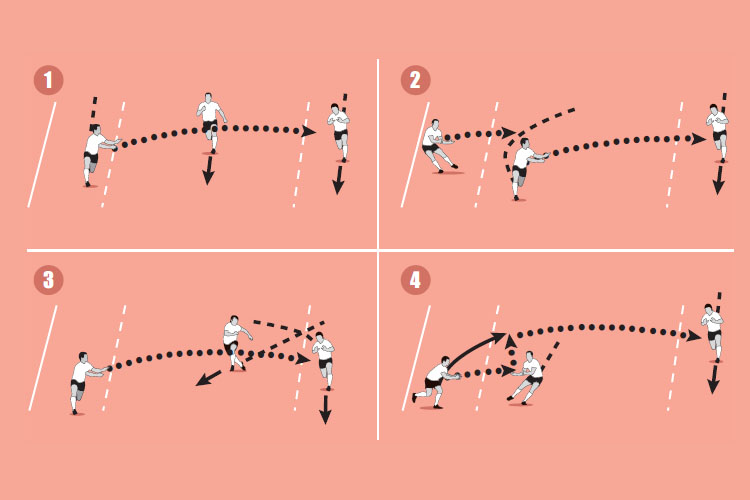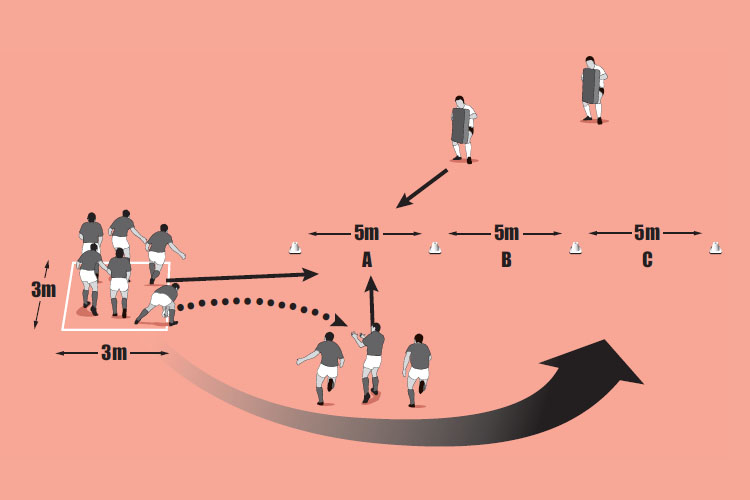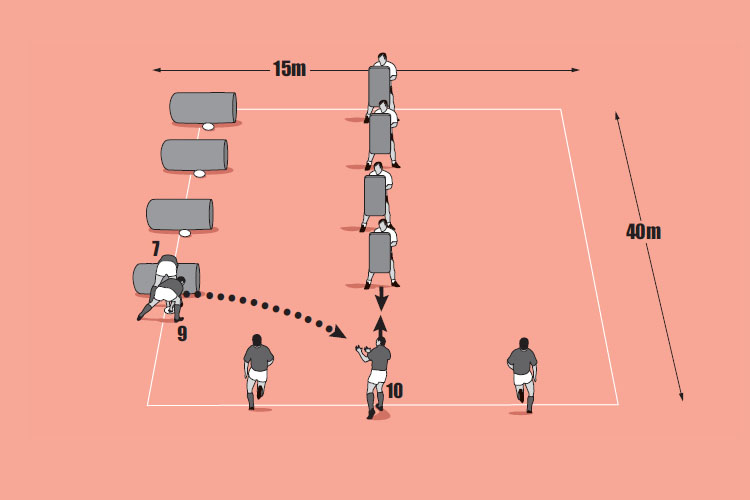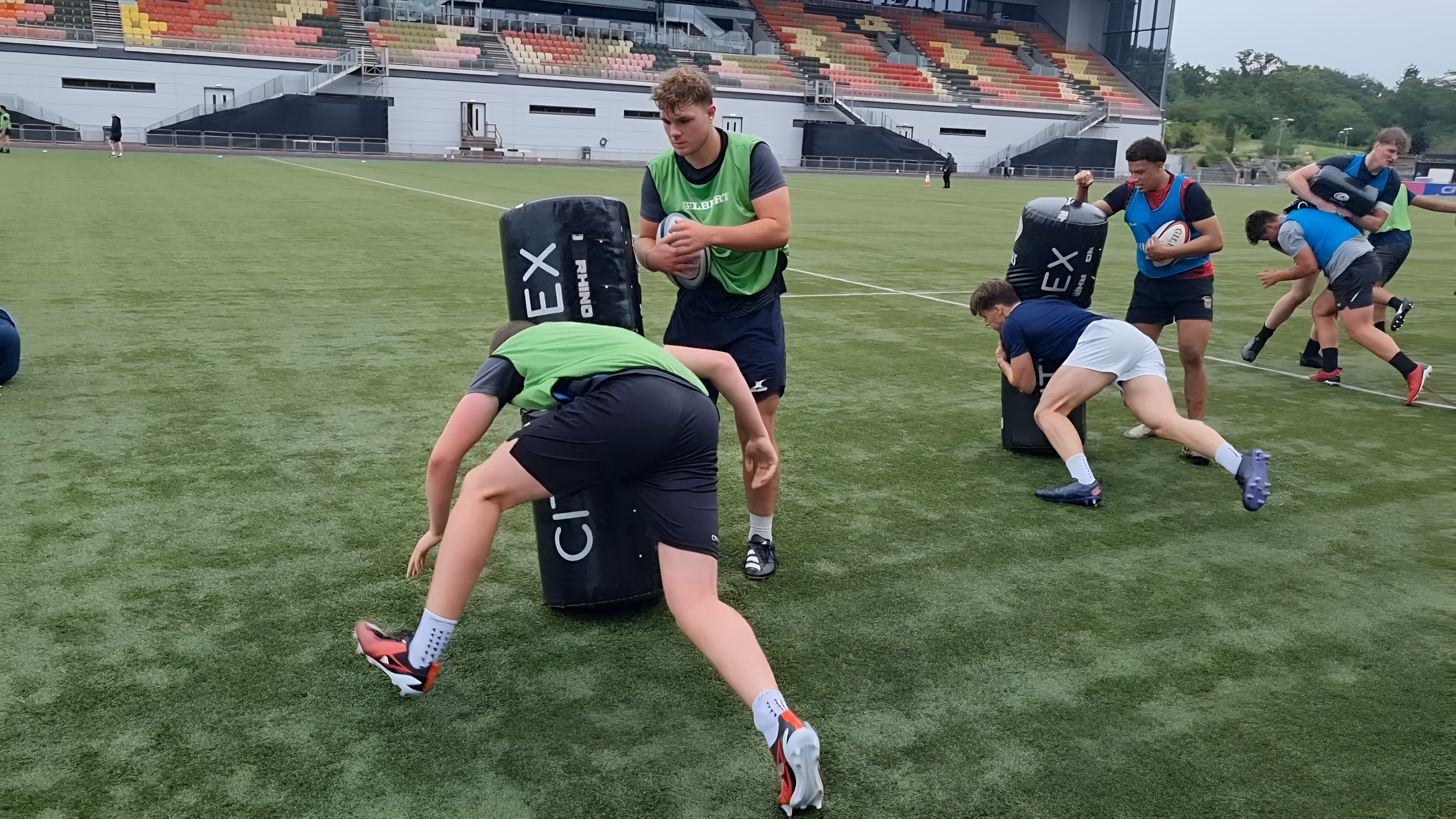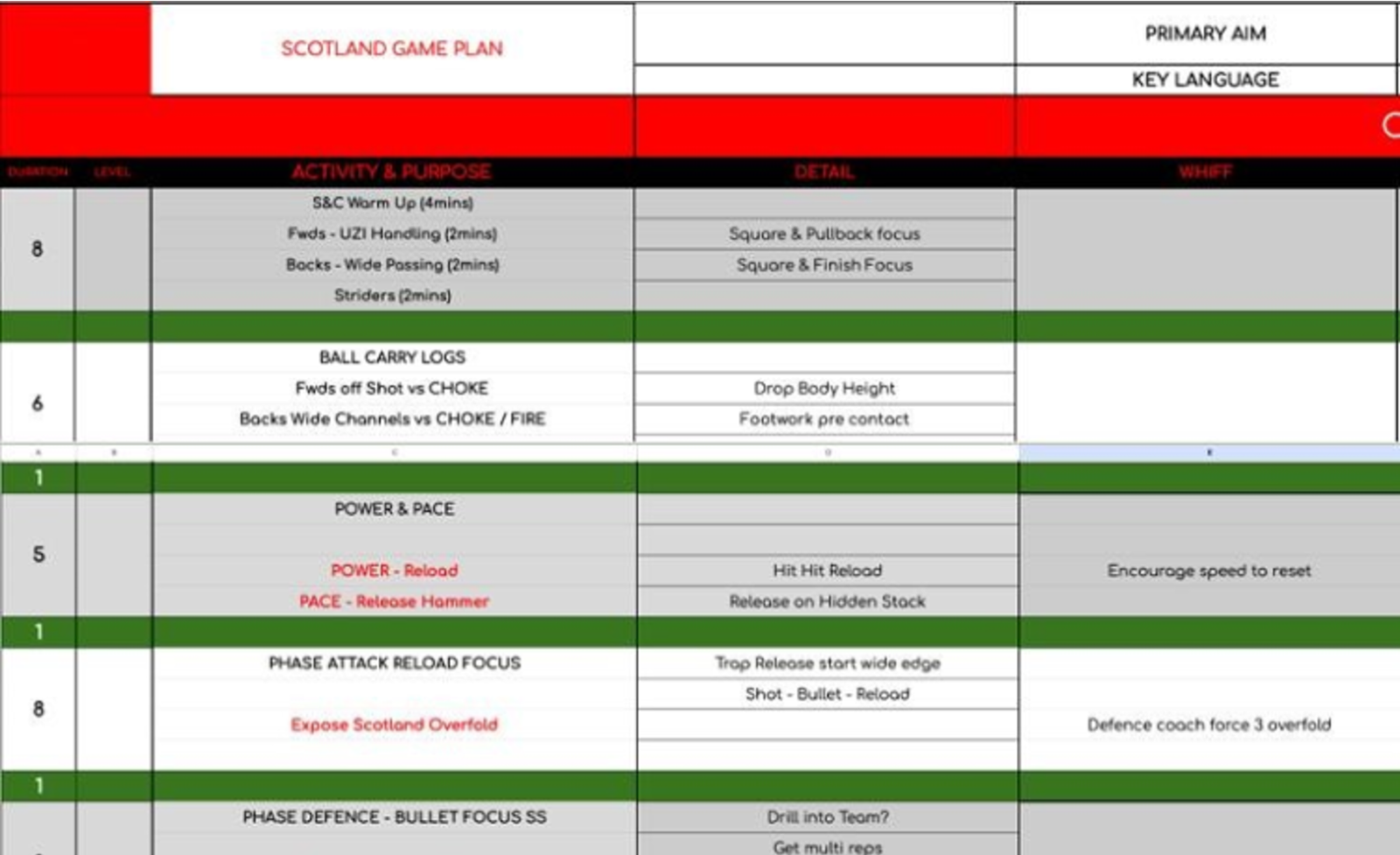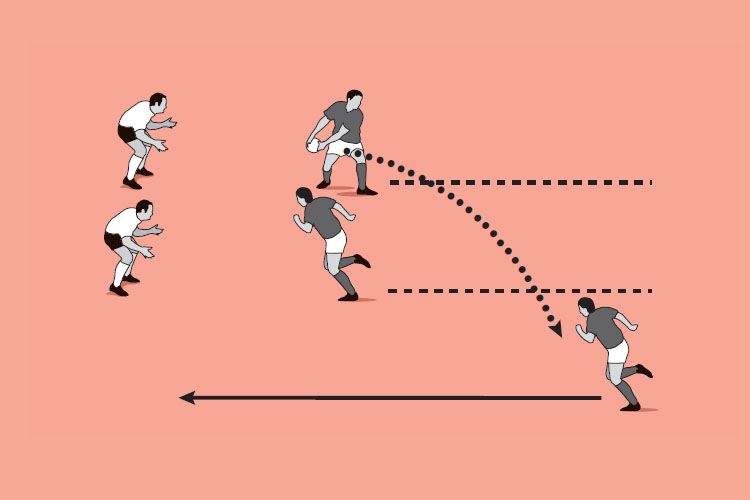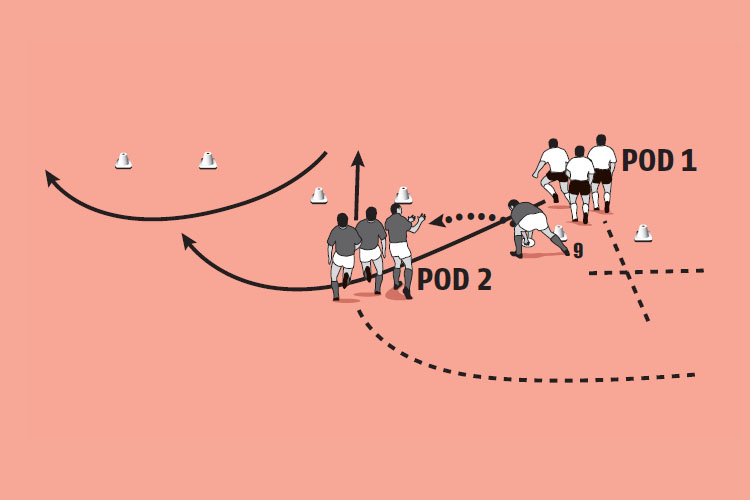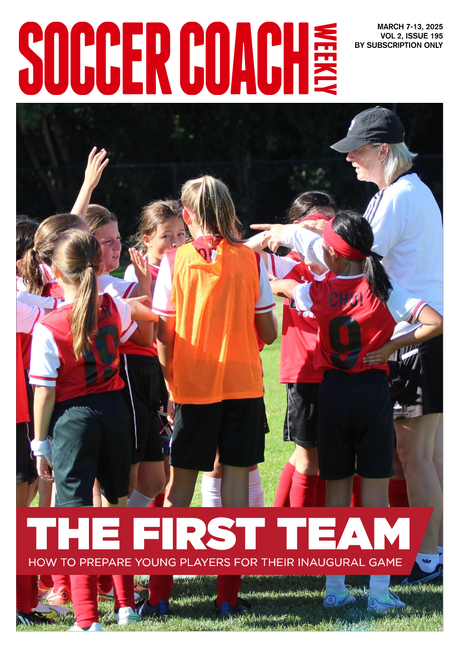Grubber targets
The grubber kick can unlock tight defences, but only if it is executed well and used at the right time. Developing the technical skills needed can be done in a closed training environment. But developing the understanding of when to use the kick is best learned through playing kicking games in training.
Warm up time: 5-7
Session time: 10-15
Development time: 7-10
Game time: 15-20
Warm down time: 7-10
What to think about
Developing a tactical understanding of when to use kicks is difficult in a training environment, especially for young players. Players can learn how to kick through repetition in training and individual practice. However, this doesn’t make them good kickers. The understanding of effective kicking only comes from playing games where players have to make decisions. You could limit your players options in matches. For instance, “I only want you to kick in our own 22 metre area”. However, that does not encourage free thinking.set-up
- Keep your weight forward over the ball.
- Hit the end of the ball and follow through with pointed toes.
What you get your players to do
Each player has a ball (or they can play in pairs). They work round a course in groups of three. Use corner flags (or ruck bags) as targets and cones as tees. Each player takes it in turns to grubber kick at the flag with the aim of hitting the flag within the two kicks. You can vary the distances between the tee and target, depending on the players’ ability.Development
Add a defender between each tee and target, about 2m from the target. If he catches the kick cleanly, the kicker has to take it back to where he kicked from. If the defender fumbles the kick, the kicker gets a free shot at the target.Related Files
Game situation
Split into two teams of no more than five players. Players can only use grubber kicks to pass the ball between themselves and to score. Opponents get possession when they intercept a kick or the ball goes out of play. Defenders must stay 1m away from the ball carrier. No players from either side can enter the red coned areas (about 2m out from the flags) in front of either goal. Initially, players have to be stationary with the ball, then allow them to run for three seconds before they have to kick.What to call out
- “Head down over the ball as you kick”
- “Keep your weight forward over the kick”
- “Follow your kick”
- “Hit the ball into the ground”
Newsletter Sign Up
Coaches Testimonials

Gerald Kearney, Downtown Las Vegas Soccer Club

Paul Butler, Florida, USA

Rick Shields, Springboro, USA

Tony Green, Pierrefonds Titans, Quebec, Canada
Subscribe Today
Be a more effective, more successful rugby coach
In a recent survey 89% of subscribers said Rugby Coach Weekly makes them more confident, 91% said Rugby Coach Weekly makes them a more effective coach and 93% said Rugby Coach Weekly makes them more inspired.
Get Weekly Inspiration
All the latest techniques and approaches
Rugby Coach Weekly offers proven and easy to use rugby drills, coaching sessions, practice plans, small-sided games, warm-ups, training tips and advice.
We've been at the cutting edge of rugby coaching since we launched in 2005, creating resources for the grassroots youth coach, following best practice from around the world and insights from the professional game.
